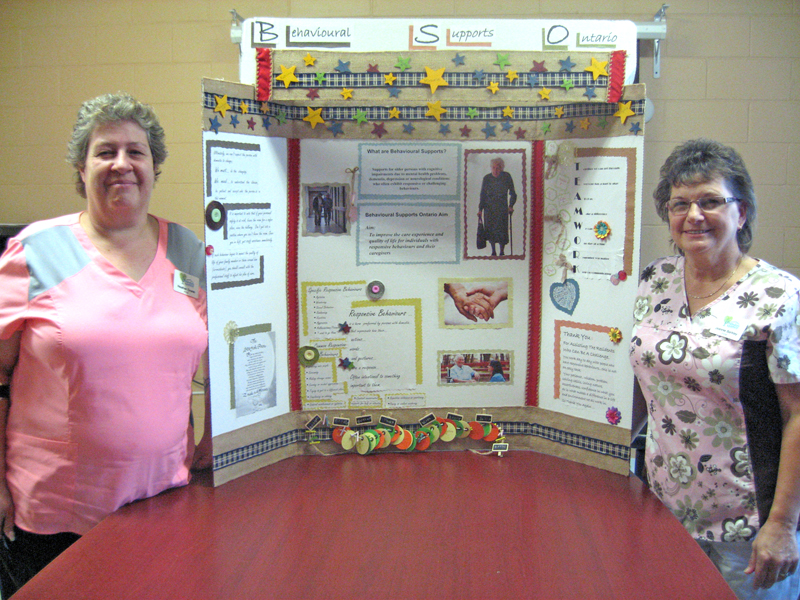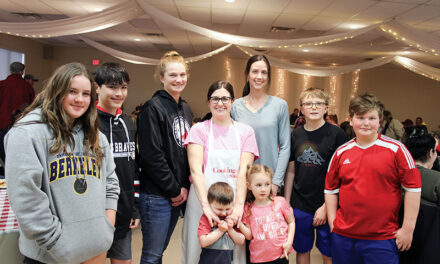Passing along their knowledge
To coincide with Alzheimer’s Awareness Month in January, The Record is highlighting Heather Cronin (left) and Jeannie Barkley, Personal Support Workers at Dundas Manor, who are learning more about dementia and are helping residents, their families and staff to better understand the disease. Courtesy photo
WINCHESTER – When caring for residents with dementia, many questions are asked. Questions like: What do they understand? What causes them to become upset? What makes life more enjoyable?
Personal Support Workers (PSWs) Jeannie Barkley and Heather Cronin are helping their colleagues find answers to these types of questions – and helping to provide better care for the Dundas Manor residents.
Additional provincial funding has allowed Barkley and Cronin to take additional training to learn more about dementia and other behavioural challenges. As champions, they are sharing their expertise with co-workers. “We spend one-on-one time with residents, learning more details about their lives and how the disease is affecting their understanding of their care,” explained Cronin. “That information is then shared with the entire care team. The program benefits everyone.”
“This is their home,” added Barkley. “We want to help alleviate their stress and meet their needs.”
It’s all about understanding the disease, being patient and accepting who the person is in the moment. “The person can’t change. We must do the changing and often the simplest things can make a difference,” said Cronin.
Barkley and Cronin share examples of residents who exhibit behaviours of agitation, aggression or wandering. By learning more about their history and what causes them stress, plans can be put in place to help. It can be as simple as reducing noise levels in certain rooms or putting safety supports in place for a resident who wants to walk up and down the hallways.
The team also supports families, learning about their concerns as well as hopes for their loved ones. “It’s very rewarding to know we can make a difference and make things better for a resident,” noted Barkley.
“I strongly support this program in long-term care,” summed up Administrator Susan Poirier. “The additional one-on-one support is so important to enhance the lives of our residents living with dementia and to support their families and our staff.”









